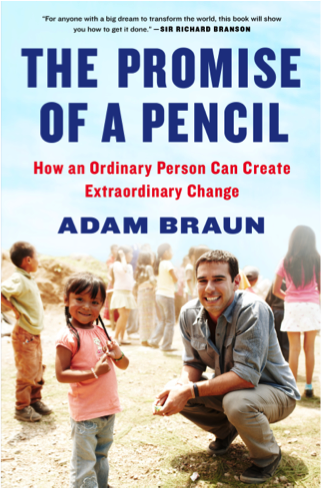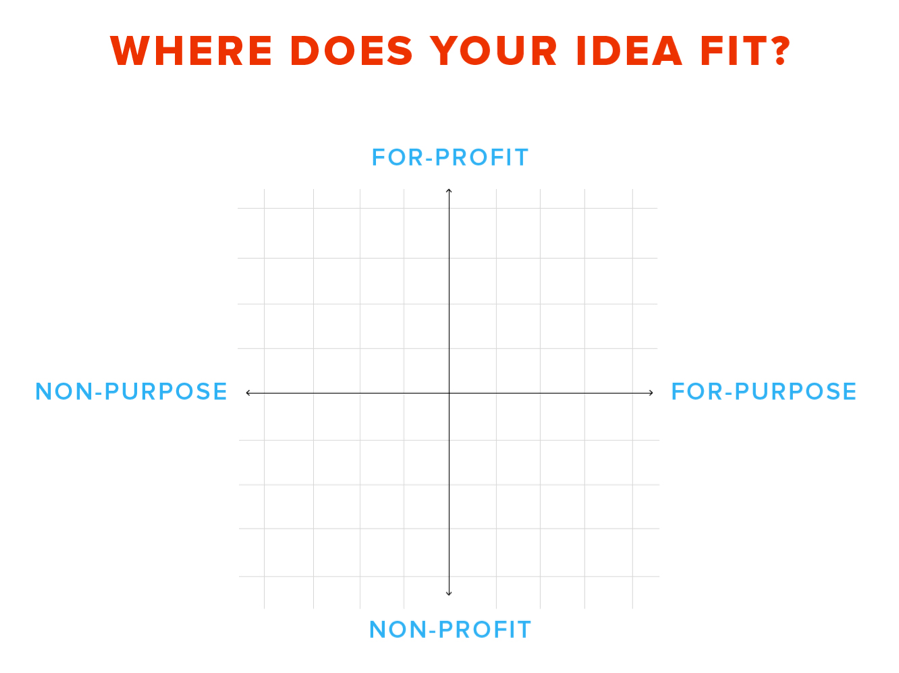Four years ago, I sat at my desk overlooking the Manhattan skyline from the 25th floor of 3 Times Square. I was in my mid-twenties, earning a six-figure salary at Bain & Company, which has now been rated the #1 global consulting firm by Consulting Magazine for 11 years straight. I looked down at the drafted email on my desktop, took a deep breath, and pressed send. The email notified more than 400 coworkers and friends that I was leaving what I’d previously believed was my dream job to pursue the non-profit I had founded, Pencils of Promise (PoP).
What began as a $25 deposit and a request for donations on my 25th birthday to build one school in the developing world had morphed into a 501(c)3 organization run by passionate young professionals who believed that bringing business acumen to humanitarian idealism could produce real innovation. When I left Bain in March 2010, PoP had completed two schools. Today, we have broken ground on more than 200 schools across four countries (Laos, Ghana, Guatemala and Nicaragua) that have served more than 20,000 students.

In my new book, The Promise of a Pencil: How an Ordinary Person Can Create Extraordinary Change, I share the surprising steps anyone can take to create a life of success and significance. This includes never taking no from someone who can’t say yes, fessing up to your failures, and doing the small things that make others feel big (like getting business cards for key volunteers even before you can offer salaries). But for years I’ve been troubled by something that I consider the biggest mistake in the non-profit space: that 501(c)3 companies have allowed themselves to called “non-profit.”
The word non is defined as “of little or no consequence: unimportant: worthless.” And yet it’s the first word you hear when describing charitable work. That’s because charity historically stems from religious penance for sins performed in other areas of our lives. It’s still secretly present in our language, as you’ll often hear people tell someone who works at a charity that he or she is “such a saint.”
But if we’re honest, absolutely no one works at a 501(c)3 organization because they have aspirations to be poor. No one wakes up and says, “I can’t wait to not profit today!” We’re driven by ambition to solve the world’s most intractable social issues. We want to craft a better world than the one we inherited, and we do this work not to pursue personal poverty, but to alleviate the lack of profitability in the lives of others and enhance the sense of meaning in our own. So why do we continue to use a phrase that only describes a small component of our business model? Shouldn’t we focus on the positive elements of what our efforts create instead of highlighting what they don’t?
In 2011, at the Google Zeitgeist conference, I suggested that going forward all 501(c)3 organizations start calling themselves “for-purpose” organizations rather than non-profit, committed to maximizing impact and being held to the same standards of accountability, results, and ambition as our for-profit peers. But what I’ve realized since then is that “for-purpose” is not the opposite end of the for-profit spectrum, it’s an entirely new axis altogether.

We’re moving to a place as a society where the question of whether an entity is “for-purpose” or “non-purpose” will be a greater indicator of its potential success than its for-profit or non-profit designation. The latter two will simply define the business model it adheres to in achieving its attempted mission.
Marc Andreessen, one of the most successful venture capital investors of the last decade, recently wrote a blog post stating that the most relevant criteria for success in his tech startup investments is not a desire to acquire wealth, but a clear mission-driven commitment to solving a societal problem. Sounds familiar doesn’t it? This is the same language that a traditional non-profit would use to define itself too.
The great mistake here is that for years we’ve been using a restricted pair of phrases to describe the work that we do, and more importantly, why we do it. The rise of the for-purpose movement is upon us. I hope you are ready.
The Promise of a Pencil: How One Ordinary Person Can Create Extraordinary Change is available in bookstores now.
More Must-Reads from TIME
- Inside Elon Musk’s War on Washington
- Meet the 2025 Women of the Year
- The Harsh Truth About Disability Inclusion
- Why Do More Young Adults Have Cancer?
- Colman Domingo Leads With Radical Love
- How to Get Better at Doing Things Alone
- Cecily Strong on Goober the Clown
- Column: The Rise of America’s Broligarchy
Contact us at letters@time.com